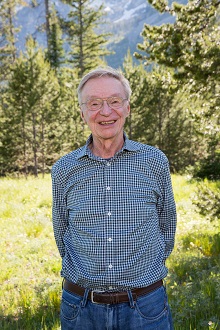
David Kuck
Intel Fellow
Professor Emeritus, University of Illinois, Urbana-Champaign
Six Solvable System Challenges
Today’s SW tools provide performance profiles, mostly in architectural terms (cpi, cache misses, etc.), but little energy information about computations. To fix problems, SW developers need more insight about their code and its HW interactions. For example, new system modeling technology reveals codelet energy consumed per HW node. Modeling can also enable What-if analyses answering developer questions about the potential value of vectorization, loop tiling, etc. System user input can also enhance operating policies, accepting performance or power limits and optimization goals (e.g. maximize perf/energy, subject to a power limit). HW/SW codesign is the hardest problem, and requires all of the above together with What-if analyses allowing architects to vary BW, latency and storage size of HW nodes, and run tens of thousands of codelets in system-optimized forms. These topics will be presented in terms of 6 hard but solvable system challenges.
スライドはこちらへBiography
David Kuck is an Intel Fellow doing R&D in Intel’s Software and Solutions Group. He led the Parallel and Distributed Solutions Division, which produced parallel software development tools, including the Intel Threading and Cluster Tools. He is currently working on the HW/SW codesign of architectures and applications based on performance, energy and cost.
Kuck was a Professor of CS and ECE at the University of Illinois (UIUC), where he founded (1983) and directed the Center for Supercomputing Research and Development through 1992. In 1993, he left the university and joined Kuck and Associates, Inc. full time. He served as Chairman of KAI from its founding in 1979 until 2000 when it was acquired by Intel. In the 1990s, KAI developed the OpenMP parallel programming standard, KAP/Pro Toolset for parallel program development, and the KCC C++ compiler technology.
His R&D career has included contributions to the architecture and software of a number of parallel computer systems, including Illiac IV, Burroughs BSP, Alliant FX, and Cedar, as well as the development of the Parafrase compilation software for parallel program restructuring. He is a Fellow of the IEEE, ACM and AAAS, and has received a number of awards for computer architecture and software design, including the IEEE Piore Award, the IEEE Computer Society’s 2011 Computer Pioneer Award and the Charles Babbage Award, the ACM-IEEE Eckert-Mauchly and Kennedy Awards, and is a member of the National Academy of Engineering.
Kuck received a B.S.E.E. from the University of Michigan, an M.S. and Ph.D. in Engineering from Northwestern University, and was a Ford Foundation post-doc and Assistant Prof. of EE at MIT.

